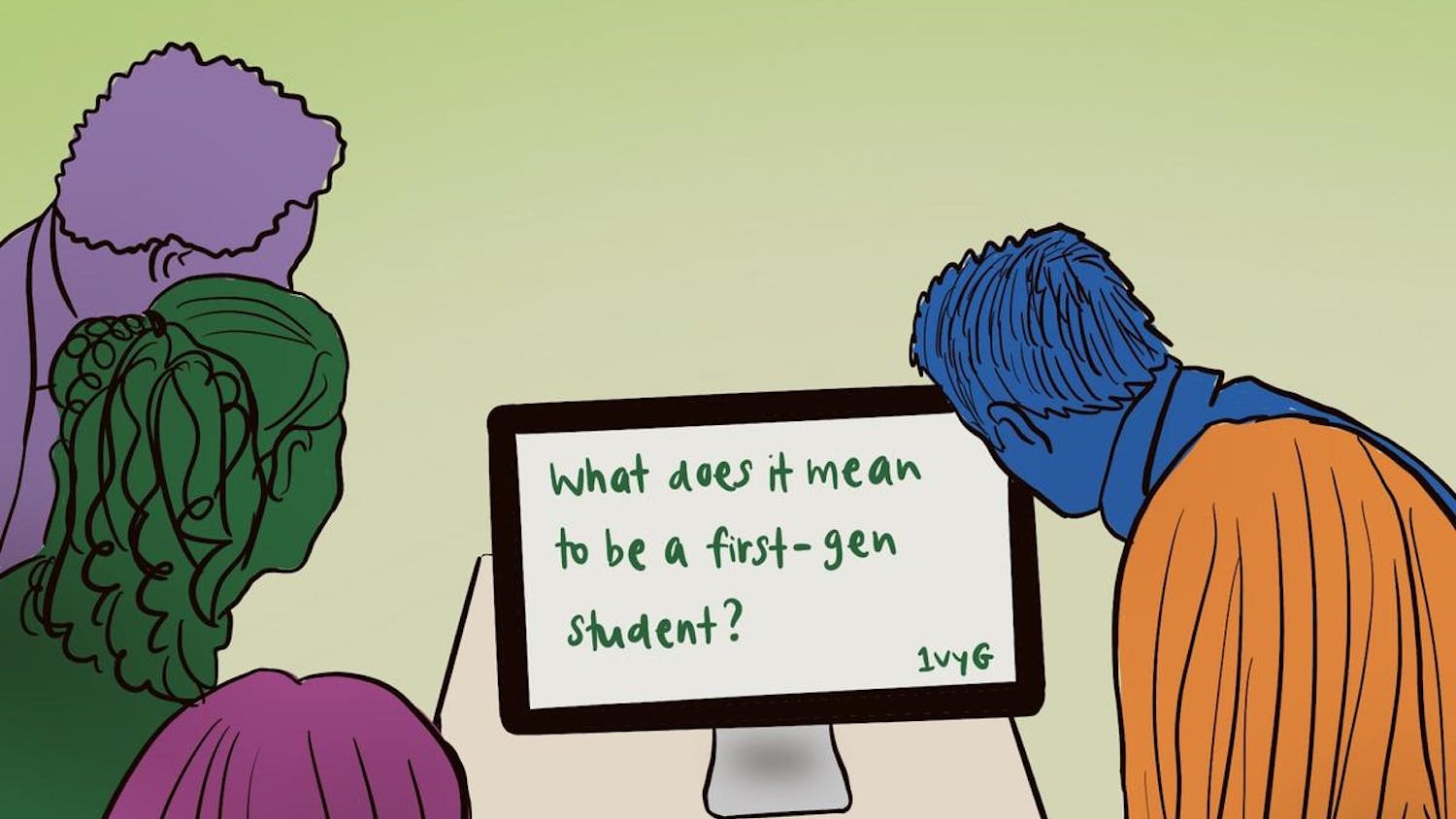Leaders from Brown Democrats and Brown Republicans reached across the aisle to discuss key U.S. policy issues during a panel hosted by the student group No Labels at the Watson Institute for International and Public Affairs last night. Titled “Our America: A Discussion with Brown Democrats and Brown Republicans,” the event explored “possible avenues for bipartisanship at both Brown and the national level,” according to No Labels’ Facebook page.
Bob Hackey, a Watson lecturer and professor of health policy and management at Providence College, moderated the discussion. Hackey posed questions addressing three legislative areas: national security, health care and immigration. Brown Democrats and Brown Republicans created the questions together prior to the event.
The panelists began with an examination of the United States’ involvement in foreign affairs. U.S. actions abroad aim to promote a “global liberal social order” which is ultimately beneficial for the world, said Rose Lang-Maso ’20, president of the Brown Dems. She noted, however, that future foreign policy must walk a fine line between “not participating in unnecessary force” and “becoming entirely isolationist.”
Nick Guarino ’20, co-president of the Brown Republicans, voiced similar sentiments. “The most important part of our policy is defending the homeland, but in addition to that, it really is maintaining the liberal national order that has served the world so well the last 70 years.”
Regarding health care, both the Brown Republicans and the Dems agreed that the current system is flawed. “The United States pays more than any other nation in the world of our wealth, yet we get worse returns. Clearly, something about the way we are spending money on health care is just not working,” Lang-Maso said.
The two sides diverged, however, on the process by which the health care system could be improved. Austin Rose ’19, a member of the Brown Republicans, argued that a market-based approach would create the most efficient health care system. “We need to make sure that the market itself is working, because that’s the most efficient way to distribute health care,” he said.
A market-based approach, however, excludes poorer Americans from access to healthcare, said Alex Kramer ’21, communications director of the Brown Dems. “Before the Affordable Care Act, a ton of people were priced out of health insurance, and that led to an extreme number of bankruptcies and many people who died unnecessarily.”
While immigration is an increasingly polarizing policy issue on the national stage, Democrats and Republicans at Brown were able to find common ground: Both groups voiced support for immigration.
“(Immigrants) increase the size of our labor force, they are good for the economy, and it’s good — morally speaking — to allow people into this country who can support the communities of immigrants who are already in this country,” said John Metz ’20, vice president of Brown Democrats.
“Any fifth-grade-educated, completely unskilled immigrant who has the heart to appreciate the American ideal, this is the place for you. I want you. I want all of you. This is the standard we should uphold,” Rose said.
Rose acknowledged that his personal views on immigration deviate from the Republican Party’s position, adding that it is honorable to disagree with one’s political party. “The biggest chunk of the young population tends to believe that the parties have really served us poorly. It’s a bad system to be stuck in your tribe.”
Alex Santangelo ’19, vice president of No Labels, said that the discussion “exceeded his expectations,” both in terms of the turnout and the civility expressed by panelists. “The perception at Brown is that everyone is on the same track and that the minority gets shut down. We proved that students who are 21 years old or even younger can talk with each other on complex topics and find middle ground.”
Hackey was similarly pleased with how respectful the discussion had been. “We had a really principled debate. They disagreed in some cases, they found common ground in other areas,” he said. “That’s the kind of discourse we really need to model as a society.”
One audience member, Viknesh Kasthuri ’21, said that panelists could reach a consensus because of the unique nature of Republicans and Democrats at Brown. “The (Brown Republicans’) views weren’t representative of the Republican Party views generally. Similarly, the Democrats weren’t necessarily representative of the entire spectrum of ideologies of their party,” he added. “That’s why we saw a lot more common ground here than we do in the national discussion.”





